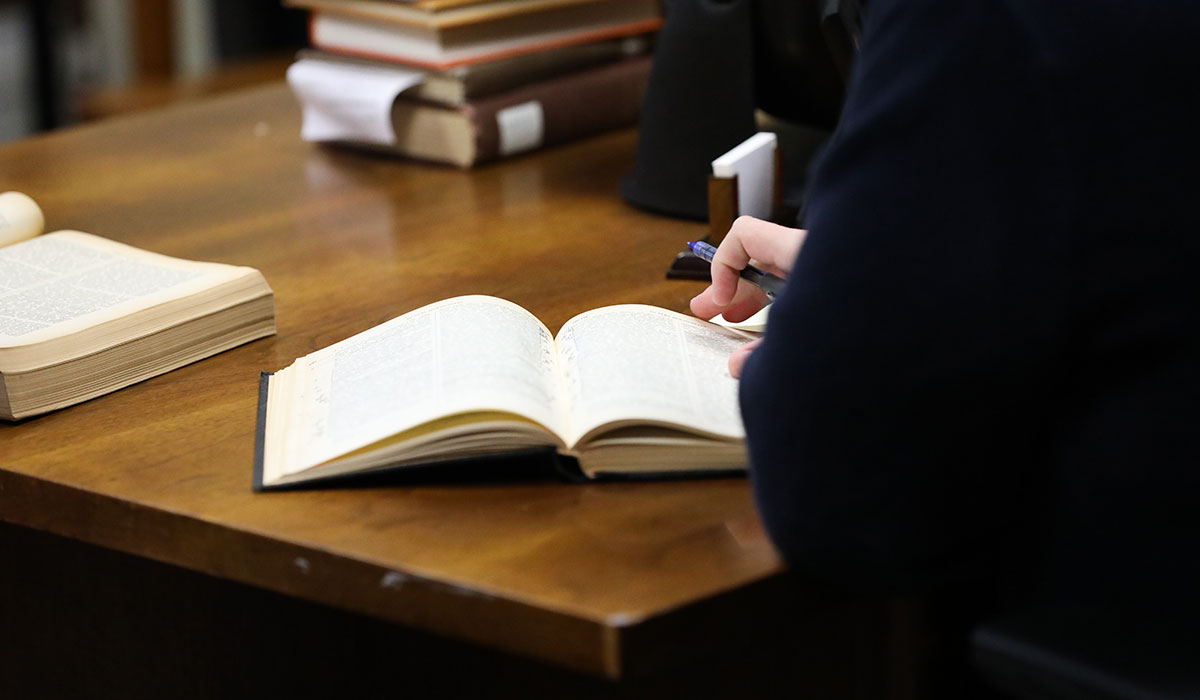What Can You Do with a Degree in Philosophy?
According to the common conceit, few things are more impractical than the study of philosophy. Former CEO of Hewlett-Packard and 2016 presidential candidate Carly Fiorina would disagree. In her 2001 Stanford University Commencement Address, Fiorina insisted that "the most important course" she ever took was "an advanced course in medieval philosophy." She said the same thing to a group of Catholic University students in November 2017. As Ms. Fiorina explained, she learned in that course how to zero in on the essentials, a talent that has served her extremely well throughout her career.
In truth, the study of philosophy will benefit you both personally and professionally. Like Ms. Fiorina, our majors learn, in their coursework, to distill the essential from the accidental. They also develop an ability to understand points of view very different from their own, and restate them in their own words. By sharpening their capacity to analyze arguments, identifying underlying assumptions, drawing out implications, making strategic distinctions, and putting things into proper perspective, they become more adept at thinking, speaking and writing in a clear and cogent fashion. Such "skills," for they are really much more than mere skills, have proven to be great assets for our alumni in a great many different fields, professions and endeavors.
Graduates with a Bachelor's degree in philosophy from The Catholic University of America have gone on to very successful careers as lawyers, high-school principals, journalists, physicians, software designers, foreign service officers, teachers, pastors, realtors, stay-at-home moms and managing partners. Alumni from the School of Philosophy are also happily at work as FBI agents, news producers, nurses, park rangers, monks, parole agents, youth ministers, substance abuse counselors, religious sisters, professors and mortgage bankers. Our graduates don't fit any particular mold. But whatever they do and wherever they go, they know how to make a difference.
Job Placement for Ph.D. Students
Although some of our Ph.D. graduates have chosen to engage in work outside of academia, the majority have gone on to tenure-track or permanent positions at the post-secondary level, in the U.S. and abroad. Internationally, graduates of our doctoral program currently hold positions in universities in Brazil, Canada, Cameroon, China, Italy, Japan, Korea, Nigeria, Singapore and Turkey. In the U.S., our alumni are teaching in over three dozen Catholic colleges and universities, including Assumption College, Ave Maria University, Benedictine College, Loyola Marymount University, University of Notre Dame, Providence College, Thomas Aquinas College, the University of Dallas, and the University of St. Thomas (Houston). Recent graduates have also secured positions at Hope College, St. John's College, and at a number of community colleges and seminaries.
In short, Ph.D. alumni who engage in unrestricted job searches have excellent chances of finding a position teaching philosophy in a college or university. Most do so in four-year Catholic colleges or seminaries; some do so in Ph.D.-granting institutions or non-Catholic colleges.
Please see the link below for a list of our Ph.D. graduates and their academic job placements since 1997.
Ph.D. Graduates 1997-2022 — Comprehensive List

